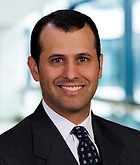Important Open Meetings Act Temporary Provisions
On Friday, March 27th, Governor DeWine signed House Bill 197 (H.B. 197), which enacts several provisions in response to the COVID-19 pandemic. Among the provisions, the new law permits the use of electronic communications in lieu of in-person meetings during the emergency declared by the Governor’s Executive Order 2020-01D (but not beyond December 1, 2020).
Section 12 of H.B. 197 provides that members of a public body may hold and attend meetings and may conduct and attend hearings (under R.C. 119.01) by means of teleconference, video conference, or any other similar electronic technology. When the public body conducts such meetings, the members who attend by electronic technology are counted as if present in person (including for both quorum and voting).
Public bodies must provide at least twenty-four (24) hours’ notice to (1) the public, (2) the media that have requested notification of meetings, and (3) the parties required to be notified of a hearing. The notice must be provided by reasonable methods by which any person may determine the time, location, and the manner by which the meeting or hearing will be conducted. In an emergency requiring less than the twenty-four hours’ notice, the public body must immediately notify the news media that have requested notification or the parties required to be notified of a hearing of the time, place, and purpose of the meeting or hearing.
Under this temporary provision, the public must still have access to the meeting or hearing comparable to what otherwise would be provided, and “commensurate with the method in which the meeting or hearing is being conducted[.]” For instance, the public body could live-stream over the internet, local radio, television, cable, or public access channels. Alternatively, the public body could provide call-in information for a teleconference, or by means of any other similar electronic technology. The public must be able to observe and hear the discussions and deliberations of all the members of the public body, whether the member is participating in person or electronically. For hearings, the public body must establish a means, through the use of electronic equipment that is widely available to the general public, to converse with witnesses, and to receive documentary testimony and physical evidence.
This temporary legislation provides a solution for continuing to hold public meetings and do the necessary business of public bodies without increasing the risks to public officials or members of the community. Vorys encourages you to contact your Vorys attorney with any questions you may have. For questions on the Open Meetings Act, please contact: Scott J. Ziance, 614.464.8287, sjziance@vorys.com; Sean Byrne, 614.464.8247, spbyrne@vorys.com; Aaron S. Berke, 330.208.1017, asberke@vorys.com; Christopher J. Knezevic, 614.464.5627, cjknezevic@vorys.com; or Jonathan K. Stock, 614.464.5647, jkstock@vorys.com.
--
VORYS COVID-19 TASK FORCE
Vorys attorneys and professionals are counseling our clients in the myriad issues related to the coronavirus (COVID-19) outbreak. We have also established a comprehensive Coronavirus Task Force, which includes attorneys with deep experience in the niche disciplines that we have been and expect to continue receiving questions regarding coronavirus. Learn more and see the latest updates from the task force at vorys.com/coronavirus.





